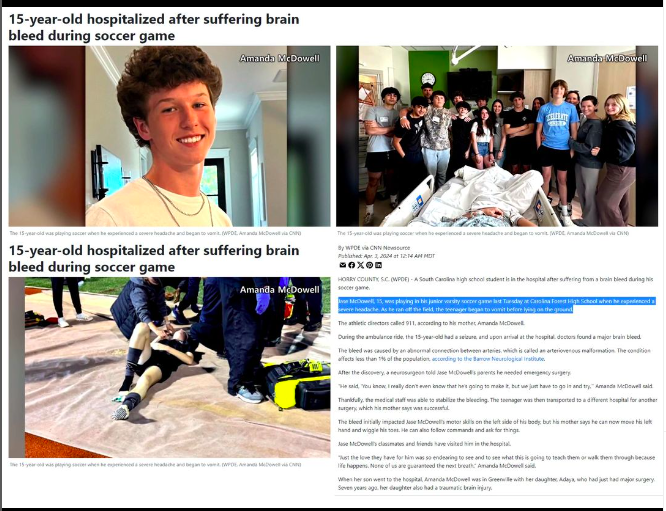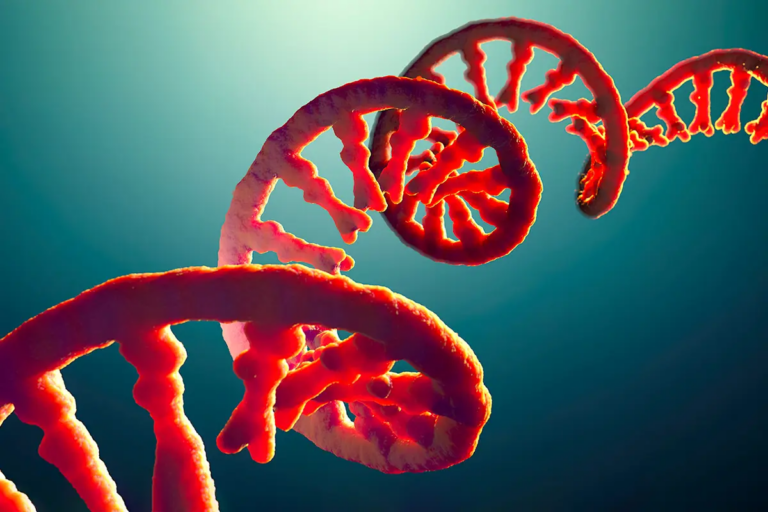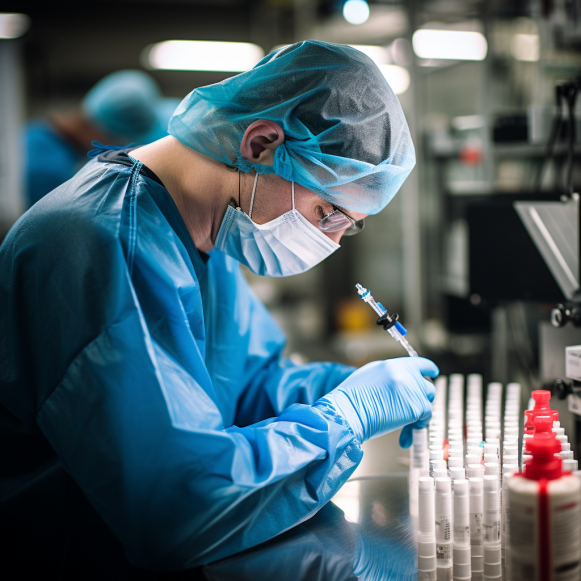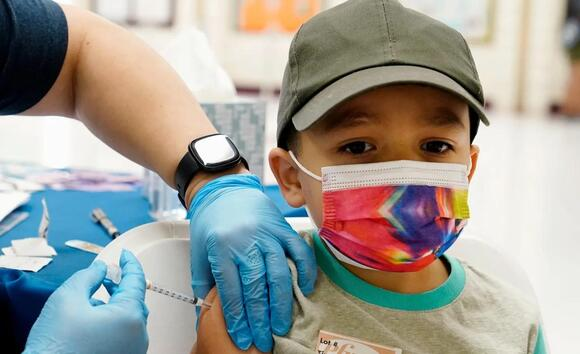FDA Responds to Reports of DNA Contamination in COVID Vaccines

As a university researcher recently testified in front of a South Carolina Senate hearing, the FDA responded to concerns about billions of plasmid DNA fragments in Pfizer’s COVID-19 vaccine.
“The mRNA COVID-19 vaccines authorized or approved for use in the United States are not defined as gene therapy,” the FDA told Maryanne Demasi, a former ABC journalist who now runs a Substack page. She was disappointed that the FDA spokesperson did not respond to her specific questions about the DNA fragments.
The spokesperson went on to say that the “FDA is confident in the quality, safety, and effectiveness of these vaccines” and that the “agency’s benefit-risk assessment and ongoing safety surveillance demonstrates that the benefits of their use outweigh the risks.”
The FDA was reacting to Demasi’s interview with Dr. Phillip Buckhaults, a cancer genomics expert and professor at the University of South Carolina, who stated that “there is DNA contaminating the vaccine, but I was also able to put a stop to some of the rumors on social media about the SV40 virus being in the vaccine and that it’s going to give everybody cancer because that’s not true.” He’s referring to claims that a virus that can infect both monkeys and humans and occasionally causes tumors was causing cancer after vaccinations.
“There’s just a piece of SV40 promoter in the vaccine,” he explained in the article. “And that’s what people were seizing on, people were saying there’s a monkey virus, we’re all going to turn into monkeys or get cancers next week or something,” the professor continued, referring to previous claims on social media that it was the cause of cancers. “I did my due diligence to tamp down that kind of fear—which was my original purpose.”
Dr. Buckhaults stated that the size of the tiny particles found in the Pfizer vaccine is what matters.
“According to the FDA, 10 nanograms.” Now, 10 nanograms could be derived from a monstrous molecule. It could also be a slew of teeny-tiny molecules. And the risk of genome modification is not proportional to population size,” he added. “It depends on how many independent molecules you have.” In terms of the risk of insertional mutagenesis, having a whole bunch of these little pieces is actually far worse. That’s far worse than having even one large piece left over. Right?”
However, he believes that there isn’t “anything nefarious” at work and that it is instead “kind of accidentally administratively dumb.”
According to the researcher, Pfizer, federal officials, and others “were scared to death” about COVID-19 in 2020 when the vaccines were being developed, and mistakes were made.
“It’s easy to sit back here now, in the safe comfort of knowing that the fear has passed and that we’re all sitting in our offices, and nobody’s scared of the world ending, and then throw rocks at what was done three years ago… think that’s really unfair.” “I really believe that most people were working in good faith to put out the fire,” Dr. Buckhaults contended.
On Friday, the Epoch Times contacted the FDA and Pfizer for comment.
Dr. Buckhaults cited research by microbiologist Kevin McKernan, a researcher on MIT’s Human Genome Project, who discovered that the amount of DNA in vaccines could be 18 to 70 times higher than the limits set by a top health agency.
Dr. McKernan published a paper earlier this year revealing that the amounts of DNA contamination in the vaccines exceeded the European Medicines Agency’s 330 ng/mg of DNA to RNA requirement by 18 to 70 times. It also exceeded the FDA’s 0 ng/dose requirement, with a reading of 12 ng/dose.
At the time, he warned that the DNA plasmids could infiltrate the human genome, contradicting FDA and other regulators’ public statements that COVID-19 vaccines do not alter human DNA.
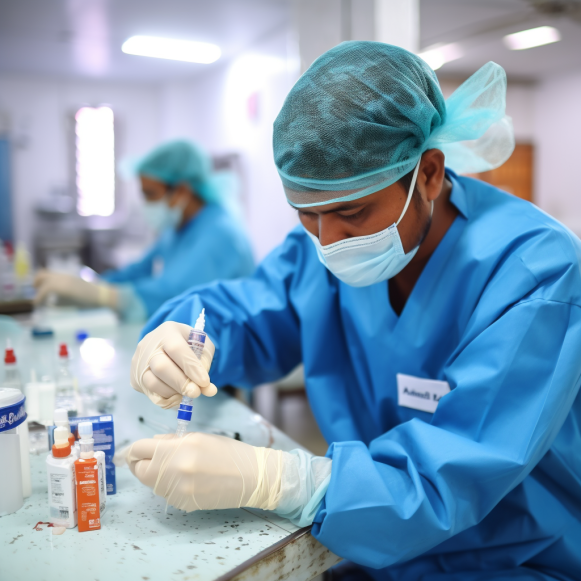
Dr. Buckhaults revealed over the summer on X, formerly Twitter, that there were as many as 2.5 billion molecules of plasmid and 100-200 billion pieces of plasmid DNA identified by his sequencing in a Pfizer dose of 300 microliters. According to a previous Epoch Times report, this equates to about 20 ng per dose, which is roughly double the limit set by the FDA and other health organizations.
“The vaccine contains plasmid DNA fragments.” “No one knows if this DNA has any clinically significant effects, but it is prudent to check vaccinated people for any evidence of genome modification,” Dr. Buckhaults told The Epoch Times a few weeks ago. “If found, it could motivate changing the regulatory guidelines by lowering the limits for allowable DNA in a lipid-nanoparticle based vaccine.”
Health Canada, a Canadian health agency, did not express any concern about his findings, as did the FDA this week.
“Health Canada was aware of the presence of residual plasmid DNA as a process-related impurity during review and prior to the authorization of the mRNA COVID-19 vaccines,” the agency stated several weeks ago to The Epoch Times.
What Happens to Vaccinated People?
Dr. Buckhaults elaborated on the potential risks that Pfizer-vaccinated individuals face in his interview with Ms. Demasi. He suggested that more research be conducted.
“There will be disagreements about the magnitude of the risk.” We don’t know if it means anything yet. “It’s possible that this DNA does nothing,” he explained.
However, he cautioned that “there is a reasonable chance that if you inject pieces of DNA wrapped up in this transfection particle—the lipid nanoparticles—that some of this will get into cells and then integrate into the genome of cells.” “I believe we should investigate.”
Dr. Buckhaults added that there is a “small possibility of cancers in people in the next five years down the road, or the possibility of autoimmunity from the production of these peptides,” referring to an autoimmune response such as myocarditis.

